Making a Better World | Health of the Planet

To help double energy and food production, halve carbon output by 2050, and set a path to net-zero carbon emissions by 2100, MIT has a strong, collaborative focus on climate, environment, and energy research, combining technical advances with innovations in the political, cultural, and economic dimensions of climate, energy, food, and water issues.
Informing policy | resolving social and economic barriers
MIT's social science and humanities fields contribute to increased planetary health with research that informs and guides better public policy, and that reveals solutions — including science communication — to the barriers that prevent people, organizations, and governments from supporting advances in environmental practices and policy.
SHASS faculty also teach every MIT undergraduate, empowering the next generation of problem-solvers with political, economic, cultural, and historical perspectives.
Featured Stories
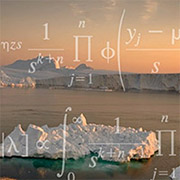
The moral calculus of climate change
In a mathy philosophy class, MIT students explore the risks, probable outcomes, and ethical implications of living in a warming world. More
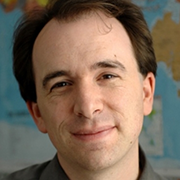
3 Questions | Benjamin Olken on the economic impact of climate change
"There has been a lot of emphasis on studying the effects of climate change on agriculture. But if it’s affecting other aspects of the economy — like industrial output, investment, and innovation — the long-run impact could be much bigger." More
Selected Stories
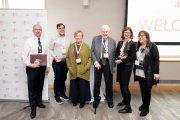
Shining a spotlight on local science journalism
The Knight Science Journalism program’s Victor K. McElheny Award honors outstanding local and regional journalists’ reporting on science, public health, tech, and the environment.
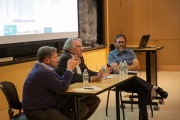
A civil discourse on climate change
The forum is the first in a series planned at MIT this year, part of an initiative meant to encourage the open exchange of ideas.


SOLVING CLIMATE
Given what we know, how do we live now?
MIT's Council for the Uncertain Human Future
The Council for the Uncertain Human Future convenes small circle groups to reckon with the climate crisis in solidarity. Sponsored jointly by MIT Environmental Solutions Initiative, the Dean's Office of MIT SHASS, and the Council leadership, the ongoing program is part of Fast Forward: MIT's Climate Action Plan for the Decade.
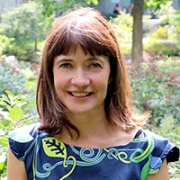
SOLVING CLIMATE
Expanding imagination for a livable future
A conversation with MIT anthropologist Bettina Stoetzer about shaping a livable future, her new book, and her MIT class on "Gender, Race, and Environmental Justice."
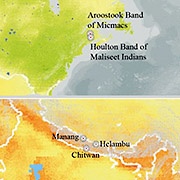
SOLVING CLIMATE
Conversations at the Frontline of Climate Change
Novel communications infrastructure from the MIT Civic Design Initiative aims to support communities on the frontlines of the climate crisis.
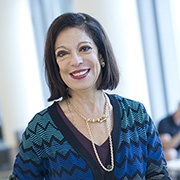
SOLVING CLIMATE
Can the world change course on climate?
A Conversation with Professor Nazli Choucri
MIT Political scientist Choucri discusses challenges and hopes for global coordination on sustainability and climate issues — and the role of political science in the process.

SOLVING CLIMATE: HUMANISTIC PERSPECTIVES
Why do some people call climate change an “existential threat”?
The phrase can refer to a literal threat to humanity’s existence, but also to the danger that unchecked climate change can pose to many human cultures and our sense of place in the natural world. "Whether or not climate change becomes a literal extinction threat, it has already changed our relationship with the planet we live and depend on, which will forever alter the way we feel about human existence." — Commentary by MIT Philosopher Kieran Setiya
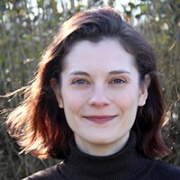
SOLVING CLIMATE
Caroline White-Nockleby, PhD student in MIT HASTS
Research to surface and address the socio-environmental complexities of renewable energy: "Renewables must be collected, stored, and transported; they require financing, metals extraction, and the processing of decommissioned materials. Energy access, mining, and waste deposition are material, geographically situated dynamics. Not everyone stands to benefit equally from renewable energy's potentials, and not everyone will be equally exposed to its socioenvironmental impacts."
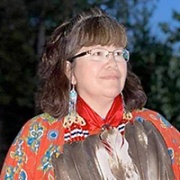
SOLVING CLIMATE
Two-Eyed Seeing
In this interview, Patricia Saulis, MLK Visiting Scholar and Executive Director of the Maliseet Nation Conservation Council, discusses drawing on both Indigenous and Western knowledge systems to develop more sustainable ways to live on the planet.
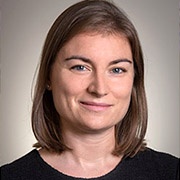
SOLVING CLIMATE
Clare Balboni | On Economics, Environment, and Policy
"There is tremendous and growing interest in environmental questions within economics. Economic models and methods can help to enhance our understanding of how to balance the imperative for continued growth in prosperity and well-being — particularly for the world’s poorest — with the need to mitigate and adapt to the environmental externalities that this growth creates."

SOLVING CLIMATE
On planetary change and human health
MIT anthropologist Amy Moran-Thomas reflects on the deep connection between planetary and human well-being: “When I think of health now, I think of the disarray in bigger ecosystems and infrastructures that is also landing in human bodies.”
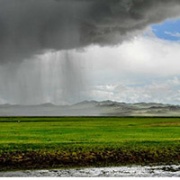
SOLVING CLIMATE
Climate change linked to rise and fall of medieval nomadic empires
Paleoclimatology provides important context for examining the activities of historic human societies. Meanwhile, present-day Mongolia is experiencing devastating droughts and winter weather as a result of global climate change.

MEET THE MIT BILINGUALS
Darya Guettler ’21 | MechE + Political Science
Combining degrees in mechanical engineering and political science, MIT senior Darya Guettler '21 advocates for climate policy, sustainable technologies, and equitable, inclusive processes.

SOLVING CLIMATE
$25 million gift launches ambitious new effort tackling poverty and climate change
The King Climate Action Initiative at J-PAL will develop large-scale climate-response programs for some of the world’s most vulnerable populations.
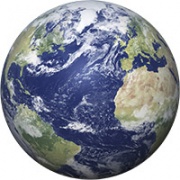
CLIMATE
Solving Climate | Humanistic Perspectives from MIT
In this ongoing series, MIT faculty, students, and alumni in the humanistic fields share perspectives that are significant for solving the economic, political, ethical, and social dimensions of climate change.

PANDEMIC
Research + Resources for the Pandemic
Research and commentary from the MIT SHASS faculty and graduate students to inform policy and increase public understanding about the complex pandemic landscape. Content areas include the impacts of the pandemic on healthcare, the economy, education, the 2020 elections, daily life, and democracy. There is also a channel with music and other creative works that offer contemplative space, meaning, and uplift.

CLIMATE 2020 | HUMANISTIC PERSPECTIVES FROM MIT
Kieran Setiya | The ethics of climate change
"Almost anyone engaged with global issues of human well-being, the distribution of resources, or the future of society is doing moral philosophy. Even the most technocratic assessment of costs and benefits makes assumptions about the value of human life and the demands of justice."
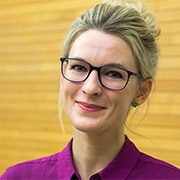
CLIMATE 2020
Amy Moran-Thomas receives the 2020 Levitan Prize in the Humanities
The award will support her in-progress book, Mine: A Family History of Place, Race, and Planetary Health, which will "excavate the cultural histories and everyday social fabrics behind the deep sedimentation of American generational identities and fossil fuel legacies.”
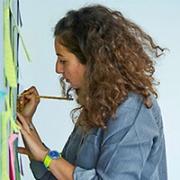
SOLVING CLIMATE
Imaginative Capacities | Nadia Christidi, PhD Student in MIT HASTS
Christidi focuses on three cities and the role that the arts play in the ability of planning institutions to imagine, plan, and set policy for possible futures: "I think we are going to need a lot of imagination going forward," she says. "As climate change gets underway, we’re seeing a lot more emphasis on adaptation — and imagination is key to adapting to a set of totally different circumstances."
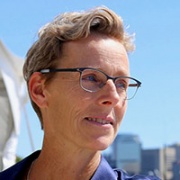
CIVIC PERSPECTIVES
The pandemic is not a natural disaster
In The New Yorker, historian Kate Brown, a Professor of Science, Technology, and Society at MIT, writes that the coronavirus isn’t just a public-health crisis. It’s an ecological one.

CLIMATE 2020 | HUMANISTIC PERSPECTIVES FROM MIT
Anne McCants | Clues from climate change in history
How, in the nadir of the Little Ice Age, did the Dutch create a Golden Age? "History shows that not everywhere fares equally poorly when faced with climatic stresses. Open-access societies — ones that tolerate a diversity of views and do not restrict agency to a preordained elite — have proved more innovative and resilient than less-open ones."
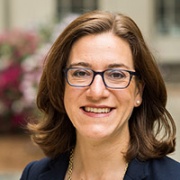
CLIMATE 2020 | HUMANISTIC PERSPECTIVES FROM MIT
Parrish Bergquist '19 | Civic Opinion
"The political challenges of addressing climate change are at least as thorny as the technological challenges, though in different ways."

CLIMATE 2020 | HUMANISTIC PERSPECTIVES FROM MIT
KSJ Fellow Thiago Medaglia on science journalism for a world in crisis
"As an environmental journalist, I have a deep connection with the natural world. I've also learned that it is essential to connect with people. As a reporter, you learn that fighting climate change includes informing the public about harmful policies and practices by governments and corporations."
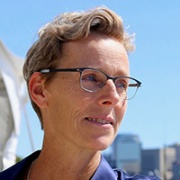
Kate Brown's book is a finalist for the National Book Critics Circle Award
Manual for Survival: A Chernobyl Guide to the Future “is a magisterial blend of historical research, investigative journalism and poetic reportage.” — The Economist

Free, MIT Climate-Related Humanistic Course Materials at MIT OpenCourseWare
Understand and help solve the economic, social, and political dimensions of climate change. Explore climate-related courses from the MIT School of Humanities, Arts, and Social Sciences.
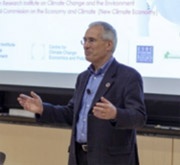
Climate expert emphasizes the fierce urgency of now
In MIT talk, Lord Nicholas Stern calls the next 20 years “absolutely defining” for society.
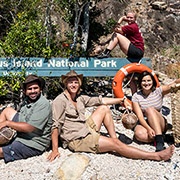
MISTI-Australia expands horizons, one adventure at a time
Exploring new cultures and conserve the Great Barrier Reef
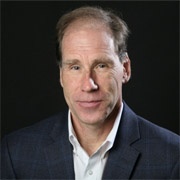
Gulf Stream series wins Knight Science Journalism Program’s Inaugural Victor K. McElheny Award
Award honoring local and regional science journalism will go to a reporting team from the Charleston Post and Courier.

PLANETARY HEALTH | CLIMATE
Ideas Matter series hosts explorations of Climate Change
Ideas Matter, a joint project of Boston Review and the MIT SHASS Department of Political Science, is a lecture series that brings Boston Review writers together with other experts and practitioners for debate on the challenges of our times.
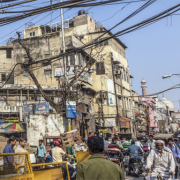
PLANETARY HEALTH + SOCIAL INNOVATION
J-Pal launches energy and environment projects
The J-PAL Environment & Energy Initiative aims to help identify cost-effective solutions to the energy and environment challenges that confront developing countries.
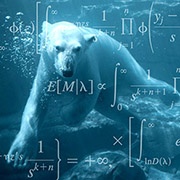
INSIDE THE CLASSROOM
The moral calculus of climate change
In a mathy philosophy class, MIT students explore the risks, probable outcomes, and ethical implications of living in a warming world.

HEALTH OF THE PLANET
Bolstering public support for state-level renewable energy policies
Analysis shows the design and framing of renewable energy policies can strengthen public support — or opposition.

HEALTH OF THE PLANET
Environmentalist and explorer
Senior Elizabeth Rider uses atmospheric chemistry research to create international connections.

3 Questions with philosopher Kieran Setiya
How philosophy helps us address climate change
"Almost anyone engaged with global issues of human well-being, the distribution of resources, or the future of society is doing moral philosophy Even the most technocratic assessment of costs and benefits makes assumptions about the value of human life and the demands of justice....Making our ethics more explicit, being self-conscious about our principles and premises, improves our moral thinking. This is particularly true when the questions are ones of public policy."
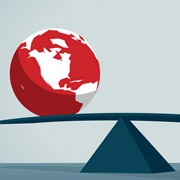
HEALTH OF THE PLANET | CITIZENSHIP
At forum, MIT community tackles tough ethical questions of climate change
Why is it so hard for human beings to address climate change? What can motivate effective action?
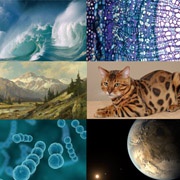
HEALTH OF THE PLANET
What is Wild: 3Q with Historian Ritvo
Scientists, social scientists, and humanists explored the question during a workshop convened at MIT by Harriet Ritvo, Arthur J. Conner Professor of History at MIT, and Sally Shuttleworth, professor of English literature at the University of Oxford. The "Call of the Wild" workshop featured presentations spanning disciplines from biology to astrophysics to history and literature.
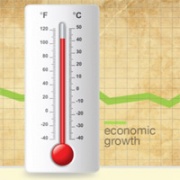
Election Insights 2016: Benjamin Olken on the Economic Impacts of Climate Change
"The increase in average temperature translates into many more extremely hot days. These matter, even in the US: researchers have found that the increased number of extremely hot days lead to lower agricultural yields, lower economic activity in industries exposed to outdoor temperatures, such as construction and mining, and even to increased mortality."
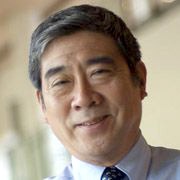
Q&A with political scientist Ken Oye
On the art of socio-technical collaboration
Over the course of 26 years at MIT, political scientist Kenneth Oye has discovered that collaborating with technologists is a very effective way to inform good policy on the issues he cares most about — from climate change to synthetic biology.
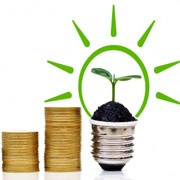
HEALTH OF THE PLANET
Power play
MIT-SHASS economist Daron Acemoglu and three colleagues present a uniquely detailed model of the dynamics of innovation in the energy industry. In so doing, they indicate how supporting clean energy R&D, not just a carbon tax, might be the best way to help clean energy technologies compete with traditional forms of energy.

RESEARCH TO POLICY: ENVIRONMENT + HEALTH
The high value of water
A study by MIT economist Esther Duflo finds evidence that people willing to pay more for running water report much higher levels of happiness when they have it.

CLIMATE + HUMAN HEALTH
MIT economics students testing projects to reduce pollution in India
In India, industrial development and rapid urbanization have far outpaced efforts to protect the environment, resulting in levels of air and water pollution that pose major threats to human health. Working with the Tata Center, two MIT-SHASS economics doctoral students are addressing this challenge by generating incentives for polluters to change their ways.

RESEARCH TO POLICY: ECONOMICS OF CLIMATE CHANGE
Study: Trade may not help a warming planet fight its farming failures
A new study co-authored by Arnaud Costinot, MIT professor of Economics and an expert on international trade issues will help countries make better plans for dealing with the impacts of climate change; his research suggests that countries should not rely on international trade to alleviate climate-induced farming problems, but seek other approaches.
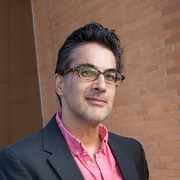
BASIC RESEARCH | ETHICS OF CLIMATE CHANGE
MIT philosopher Kieran Setiya analyzes the sources of moral action
“I really feel compelled right now by questions about climate change ethics … the worry that nothing I do may make a difference, the fact that decisions we’re making in the next generation will affect many billions of humans, or possibly even whether human life will exist in a few hundred years’ time,” Setiya says. “I feel there are very challenging, often upsetting, but unavoidable questions raised there.”

RESEARCH TO POLICY: ENVIRONMENT AND HEALTH
JPAL launches U.S. State and Local Innovation Initiative
A transformative new program from the Abdul Latif Jameel Poverty Action Lab at MIT-SHASS will partner with U.S. state and local governments find solutions to public policy issues across a wide range of social issues including crime, education, employment, health, and housing. Selected governments will receive access to JPAL researchers to help them design and implement randomized evaluations and use the results to make evidence-based decisions for policy that really works.

Q&A with anthropologist Susan Silbey
On the role of culture in solving environmental issues
"Transferring the models of physical matter or rational calculation to these massive global problems can do a great deal to help solve our current issues — but only when they are informed by a nuanced understanding of how humans and human organizations operate."
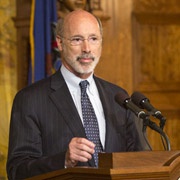
Q&A with Pennsylvania Governor Tom Wolf PhD '81
On making good policy; the politics of global issues
"The search for the answers to society’s most pressing questions always involves a political science dimension. Politics is the art of figuring out what you want to do, how you’re going to do it, and how you’re going to convince others to go along with what you want to do."
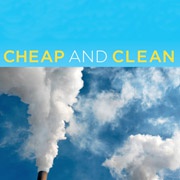
RESEARCH TO POLICY: CLIMATE
Study: Climate policy focused on local impacts is most effective for Americans
In a recent talk at MIT based on his recent book, Clean and Cheap, political scientist David Konisky PhD '06 says citizen demand for climate policy is so soft in the U.S. that new tactics are needed to address global warming.

HEALTHY PLANET | THE ROLE OF SCIENCE COMMUNICATION
How do we tell the story about climate change?
Meet five MIT Knight Science Journalism colleagues and one oak tree. By closely observing the phenology of trees and other plants — the seasonal changes in their physical characteristics — researchers are identifying a trend toward longer growing seasons. Winter is arriving later, and spring earlier.
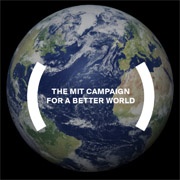
The MIT Campaign for a Better World
Announcing the new comprehensive campaign, MIT President L. Rafael Reif said, "Humanity faces urgent challenges — challenges whose solutions depend on marrying advanced technical and scientific capabilities with a deep understanding of the world's political, cultural, and economic complexities."
Discover the role of MIT's Humanities, Arts, and Social Sciences fields in solving the economic, cultural, and political dimensions of global issues, and in problem-solving in collaboration with our STEM colleagues.
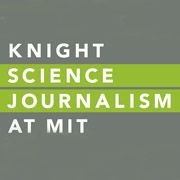
ADVANCING POLICY: PUBLIC ENGAGEMENT WITH SCIENCE
The Knight Science Journalism Fellowships at MIT
Meet the Knight Science Fellow for 2014-2015. This year MIT's Knight Science Journalism program welcomed 11 acclaimed journalists who investigate topics ranging from phenology and climate change, to medicine and human health, to quantum mechanics to hone their science reporting skills. In this article, the Fellows offer their insights on the challenges and rewards of their field.

SOCIO-TECHNICAL COLLABORATION
MIT SHASS at SOLVE
An October 2015 conference on the MIT campus marked the launch of SOLVE — an MIT project dedicated to generating ongoing thinking, research, and collaboration to solve the world's toughest problems. Meet MIT SHASS participants in some of the initial events.
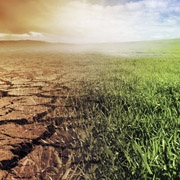
HEALTHY PLANET: COMMUNICATIONS AND CLIMATE CHANGE
Knight Science speakers cite communication as vital to progress on climate change
“The climate change crisis is no longer primarily a scientific problem. At this stage, it is a communications issue.” That assessment, from Scott Denning, Monfort Professor of Atmosphere Science at Colorado State University, was a frequent refrain during a recent MIT Knight Science Journalism “Bootcamp on Energy and Climate.” Many of the distinguished presenters at the intensive three-day course emphasized that scientists have established the evidence about climate change, and journalists now have a crucial role to educate the public about its impacts.

HEALTHY PLANET: WATER
Water, water everywhere: But is there enough to drink?
MIT experts address the challenges of supplying clean, safe water to a growing world population.
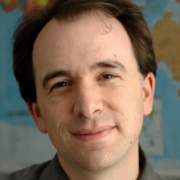
RESEARCH TO POLICY: CLIMATE CHANGE
Benjamin Olken on the economics of climate change
How is climate change going to affect our economic activity in the future? Many researchers have dug into this subject empirically in recent years. Now Olken, along with economists Melissa Dell of Harvard University and Benjamin Jones of Northwestern University, has co-authored a review article for the Journal of Economic Literature, surveying this research and suggesting areas needing further study. Olken sat down with MIT News to discuss the climate-economy connection.
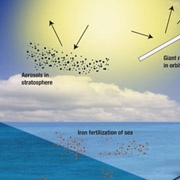
RESEARCH TO POLICY: CLIMATE
Panel at MIT assesses the benefits/uncertainties of climate engineering
As the human and economic costs of climate change threaten to rise—and with little progress in reducing global carbon emission—some activists, scientists, and politicians are searching for new ways to respond to the global climate crisis.
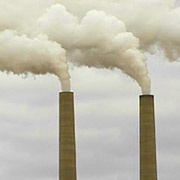
RESEARCH TO POLICY: ENERGY
An experiment puts auditing under scrutiny
In an eye-opening experiment involving roughly 500 industrial plants in the state of Gujarat, in western India, changing the auditing system has indeed produced dramatically different outcomes — reducing pollution, and more generally calling into question the whole practice of letting firms pay the auditors who scrutinize them.
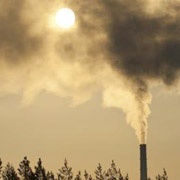
RESEARCH TO POLICY: ENVIRONMENT + HEALTH
Innovative study estimates extent to which air pollution in China shortens human lives
A high level of air pollution, in the form of particulates produced by burning coal, significantly shortens the lives of people exposed to it, according to a unique new study of China co-authored by an MIT economist.
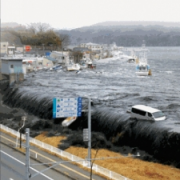
HEALTHY PLANET: POLITICS, CRISIS, AND ENERGY
Sizing up Japan, after the disaster
“When we talk about crises, they are instruments, or tools,” MIT political scientist Richard Samuels reflects. “They’re not independently transformative. They’re tools in the service of people with preferences, and those preferences are remarkably sticky.”
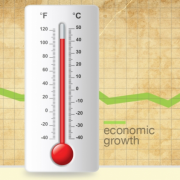
RESEARCH TO POLICY: ECONOMICS OF CLIMATE CHANGE
The economic cost of increased temperatures
A study by MIT economist Ben Olken finds evidence that warming episodes hurt poor countries and limit long-term growth. “Higher temperatures lead to substantially lower economic growth in poor countries,” says Olken.

BASIC RESEARCH
Rosalind Williams: on the "Human Empire"
An historian who finds evidence and insight in literature, Rosalind Williams, Dibner Professor of the History of Science and Technology, recently completed a book examining the critical juncture when human endeavors began to dominate the planet as never before. Forthcoming from the University of Chicago Press (2013), The Triumph of Human Empire, explores this turning point in history and technology through the works of three writers from the late 1800s.
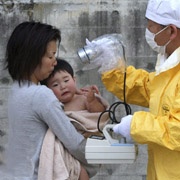
HEALTH OF THE PLANET | NUCLEAR ENERGY + POLICY
CIS Starr Forum examines Japan's nuclear crisis and governmental response
Special forum on March 16, 2011, co-sponsored by the Center for International Studies and the MIT Department of Nuclear Science and Engineering. Three MIT experts discuss Japan's nuclear past, present, and future from a political and engineering perspective. The presentation includes an eyewitness account of the crisis and the Japanese government's response.

RESEARCH TO POLICY: ENERGY
Why Japan relies on nuclear power | CNN interview with MIT political scientist Richard Samuels
Japan has more than 50 nuclear power plants and had planned to build two dozen more by 2030, according to Samuels, Ford International Professor of Political Science, and director of MIT's Center for International Studies, who has written on Japanese energy and security policy.

RESEARCH TO POLICY: ECONOMICS
Economics Symposium launches MIT's 150th celebration
This symposium, organized by the School's Department of Economics and the Sloan School of Management, celebrated the role of MIT’s faculty and students in advancing the fields of economics and finance, in putting the latest developments into practice, and in contributing to the design of public policy.
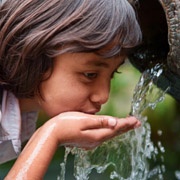
RESEARCH TO POLICY: ENVIRONMENT + HEALTH
Global water issues call on humanities and social science research
"Rethinking Water" workshop shows significance of research in the humanities and social sciences for meeting global water needs.

HEALTH OF THE PLANET: ENERGY
Energy challenge calls on political, economic, and cultural realms
Meeting 21st energy requires both technological solutions and innovation and input from economic, political, social and cultural spheres. Technical issues have human and social components, and there is no one solution to the complex energy issues.
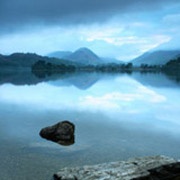
HEALTH OF THE PLANET
Critics call Ritvo's Dawn of Green "enthralling"
The controversy in the 1870s over Thirlmere, a picturesque body of water in Britain’s Lake District, created a “template for subsequent environmental struggles,” writes Harriet Ritvo, the Arthur Conner Professor of History at MIT. Ritvo’s recent book, The Dawn of Green, published in 2009 by the University of Chicago Press, explores this episode and its ongoing influence on the way we frame environmental discussions and debates.

HEALTHY PLANET: SHASS ENERGY STUDIES
School offers courses for Studies in Energy Minor
MIT's energy minor provides a multidisciplinary approach to understanding the policy, economics, science and technology of energy. All MIT undergraduate students now have a new academic option available: a minor in energy, which can be combined with any major subject. The minor is inherently cross-disciplinary, encompassing all of MITs five schools. SHASS-based courses include: Environmental Policy and Economics; Energy Economics and Policy; and Energy, Environment, and Society.